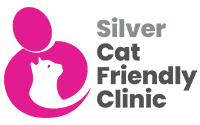Our veterinary surgeons (commonly known as vets) serve the healthcare needs of animals in and around the Dublin area. Once qualified as a vet, there are many roles to undertake at Blackrock Vets such as teaching, research, government and clinical work.
Clinical vets can work with farm animals, zoo animals, horses, laboratory animals, pets or a mixture. It is an incredibly diverse and challenging job.
The majority of vets at Blackrock Vets in Dublin treat pets such as dogs, cats, rabbits and birds. The health and welfare of animals under their care is their priority (rather like a doctor for people). This is achieved by diagnosing and treating diseases or injuries, preventing disease and advising owners on how to best look after their pets.
Prevention
As the saying goes, prevention is better than cure. For that reason, part of a vet's job at Blackrock Vets is to advise owners on how to prevent disease. This includes recommending and administering annual vaccinations and treatment to help them avoid fleas, ticks and worms. A health check with a vet will include a physical examination and more advanced techniques were indicated to identify abnormalities that could be treated to avoid the onset of disease.
Diagnosing
When an animal is displaying symptoms of injury or illness, it is a vet's job to diagnose what is wrong. Sometimes this can be a physical using their skills to observe, feel and palpate the animal, or there may be a need for diagnostic tests like blood tests, x-rays, or scans to get to the root of the problem. If further checks are needed, the vet will make the necessary arrangements and then process the results of those checks accordingly to diagnose the problem.
Treating
A key part of a vet's role is deciding how best to treat an ill animal to bring them back to health. This may involve prescribing medication that the animal's owner can often administer at home, or it could involve surgery to fix a broken bone or remove a tumour. In some cases, the animal may need to stay at the clinic for treatment like a stay in hospital or be referred to a specialist for further care. Many vets take further qualifications in their chosen field, such as surgery, internal medicine, cardiology, etc.
How to become a vet surgeon in Ireland
There is only one course currently available in veterinary medicine in Ireland, which is offered in degree form by UCD. The course takes five years and 550 CAO points are usually required to get onto the course
The first and second years of the course teach the applicant relevant knowledge in animal handling, animal welfare, nutrition, breeding and management. In the third and fourth years, you study the prevention, diagnosis, treatment and control of diseases in domestic animals and birds. The final year of the course would ve spent gaining practical skills in animal surgery and medicine, diagnostic imaging, anaesthesiology and clinical pathology. Veterinary students undertake relevant professional work and will gain valuable experience in veterinary practice between academic years and during holiday periods.
If you would like further details about the application please contact https://www.cao.ie/
Next steps
Following on from qualifying as a vet, most will join a general practice such as ours at Blackrock Vets or undertake an internship. There is a required period after starting to fulfil the graduate development programme. Many companies such as Linnaeus offer great support to new graduates in beginning their careers as vets.
Following on from qualifying in general practice, some vets will choose to specialise in a particular area of animal treatment. This enables them to become highly skilled in their particular field and requires further study, intense time and effort and undertaking a residency.

